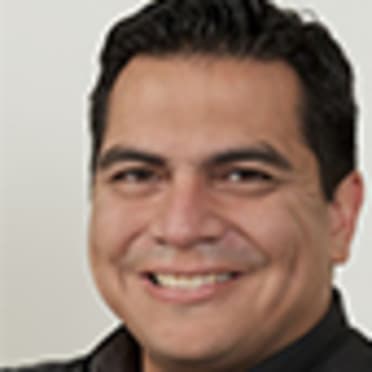Former players, future GMs? Possible after program
SAN DIEGO -- Baseball careers don’t have to end when the games stop.
Sometimes, as in Eric Patterson’s case, it simply marks a new beginning.
Patterson, who played five seasons with the Cubs, A’s, Padres and Red Sox starting in 2007, is one of 18 former professional players participating in the new Former Player Internship Program, a six-month initiative designed to provide former Major League and Minor League players from diverse backgrounds the tools to help them transition from the playing field to jobs in front offices and on coaching staffs.
“We knew it was important to create a pipeline program and were already doing what we could to help a diverse people -- men and women -- that were already in the game develop,” said Paul Mifsud, vice president and deputy general counsel for MLB. “This is just one of many programs in the Diverse Pipeline Program that is designed to seed talent into the front offices and the field staffs of the Major and Minor League teams to grow diversity throughout the game.”
The initiative, which is sponsored by the MLB Player Programs and the Diversity Pipeline Program departments, held its day-long orientation Monday at the Manchester Grand Hyatt in San Diego, the site of the 2019 Winter Meetings. The 18 participants in the program are each paired with a different team.
“Having played at the highest level and being away from the game so long, it’s great to see how the game has evolved and how it’s run,” said Patterson, 36, who will spend his internship with the Cubs. “Being here was an absolute no-brainer. It’s a great opportunity, and I’m so excited to be a part of it.”
A group of top MLB officials that included deputy commissioner Dan Halem, chief baseball officer Joe Torre and vice president of on-field operations Chris Young welcomed the group. Cory Schwartz, MLB’s vice president of data operations strategy for technology and innovation, followed with a 30-minute presentation about Statcast.
Next up was Dodgers manager Dave Roberts and Brandon Gomes, the club’s assistant general manager, along with Johnny Washington, the Padres' director of Minor League hitting, and Bobby Scales, the Pirates' assistant field coordinator. The group shared their coaching experience and career path for an hour.
“This program is certainly beneficial for the game,” Roberts said. “When you are talking about opportunities for minorities in various capacities, whether it’s in the [research and development] side, coaching or in scouting, I felt like I could share my experience. I am paying it forward a little bit. I was given an opportunity and I wanted to show my path and maybe it can somehow help them find their way.”
John D’Angelo, MLB’s vice president of league economics and strategy, and Jeff Pfeifer, senior director of league operations, joined Cardinals assistant general manager Moises Rodriguez for a 45-minute discussion about the Draft, international scouting and transactions.
The next panel centered around succeeding in the workplace and featured Yankees assistant general manager Jean Afterman, along with Yankees pro scouting directors Matt Daley and Dan Giese. Indians vice president of international scouting Paul Gillispie and Chanda Lawdermilk from the Rays' staff development and recruiting department also participated.
The busy day also included a star-studded discussion on working in the front office that featured Brewers manager Craig Counsell, Mariners general manager Jerry Dipoto, Rockies special assistant Danny Montgomery, Brewers vice president of baseball operations Matt Kleine and Tyrone Brooks, MLB’s senior director of front office and field staff diversity.
Later, De Jon Watson, the Nationals' special assistant to the GM, Ehsan Bokhari, the Astros' director of research and development, and Sean Johnson, the Twins' director of amateur scouting, also addressed the participants.
“We think that they are going to be able to contribute significantly to the health of the game going forward,” Mifsud said. “We want them to know that there is a network of supporters at the league level in all aspects of the game. What we are at the league is a support structure for them. They have many lifelines at the Commissioner’s Office for whatever area of the game you are in.”
